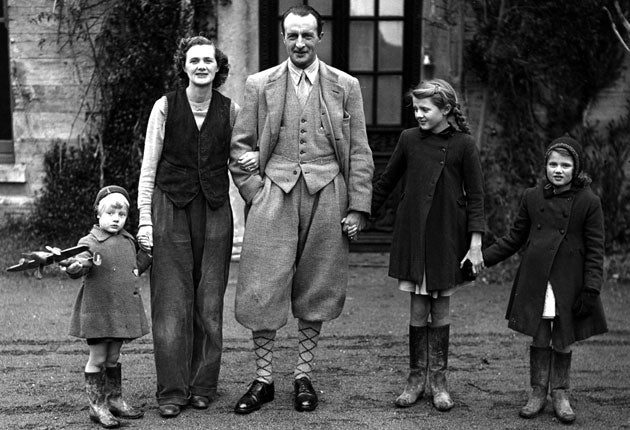Fan tracks down lost stories of Daphne Du Maurier
Newly rediscovered tales by the author of 'Rebecca' are acclaimed as 'gothic, suspenseful and macabre'

Your support helps us to tell the story
From reproductive rights to climate change to Big Tech, The Independent is on the ground when the story is developing. Whether it's investigating the financials of Elon Musk's pro-Trump PAC or producing our latest documentary, 'The A Word', which shines a light on the American women fighting for reproductive rights, we know how important it is to parse out the facts from the messaging.
At such a critical moment in US history, we need reporters on the ground. Your donation allows us to keep sending journalists to speak to both sides of the story.
The Independent is trusted by Americans across the entire political spectrum. And unlike many other quality news outlets, we choose not to lock Americans out of our reporting and analysis with paywalls. We believe quality journalism should be available to everyone, paid for by those who can afford it.
Your support makes all the difference.As the creator of Rebecca, Daphne du Maurier became the favourite novelist of put-upon wives worldwide. But the discovery of a short story about a male sex doll, written 10 years before, may oblige readers to re-evaluate her legacy. "The Doll" is one of 13 forgotten short stories to be published in a new anthology, also called The Doll, by Virago in May.
Described as "gothic, suspenseful and macabre", "The Doll" tells the story of a frustrated romance in which a young man discovers the girl he loves – also called Rebecca – will never accept his advances because she owns a life-size mechancial male doll. It was written in the 1920s and last published in 1937 in a compilation of rejected stories called The Editor Regrets. It is the most exciting of a series of discoveries by a Cornish bookseller and Du Maurier enthusiast, Ann Willmore, who knew of its existence but spent years trawling magazines and the internet to track it down.
The novelist and short-story writer Polly Samson has written a foreword to the collection, which she says is an important addition to Du Maurier's catalogue. "What is interesting about these stories is that you can see the embryo of the writer she would become," she said. "Many of the themes that would become apparent in her later novels can be seen here. They are a way into her preoccupations."
Ms Willmore, who runs a bookshop in Fowey, Cornwall, says the short stories deserve wider recognition: "They have a sting in the tale, and are quite sinister. They are different from her novels." Her own favourite, "The Happy Valley", makes the first mention of Happy Valley, which eight years later would appears as one of the settings in Rebecca.
The discovery of "The Doll" was a bittersweet experience for Kits Browning, Du Maurier's son, who still lives in his mother's old house in Fowey. "It's riveting, and quite ahead of its time," Mr Browning says. "I only wish it had been discovered when my mother was still alive. It's a very dark and disturbing story for someone who was 21 when she wrote it, and from the sort of background that she came from. It's all about a male sex doll. I would have loved to have teased her about it."
Du Maurier was 24 when her first novel, The Loving Spirit, was published in 1931, but it was Jamaica Inn, in 1936, that brought her wider critical acclaim. Many of her book were adapted for the screen, perhaps most famously her short story The Birds, by Alfred Hitchcock. Though Du Maurier's books have always been popular, they have not always been considered highly literary works. "She's a natural story-teller though," Samson says. "That's what these stories show. She is writing from a place that is not intellectual, but she has a magical ability to make you feel what the characters are feeling, without any effort. The effect of reading them is a total immersion into her mind."
Join our commenting forum
Join thought-provoking conversations, follow other Independent readers and see their replies
Comments